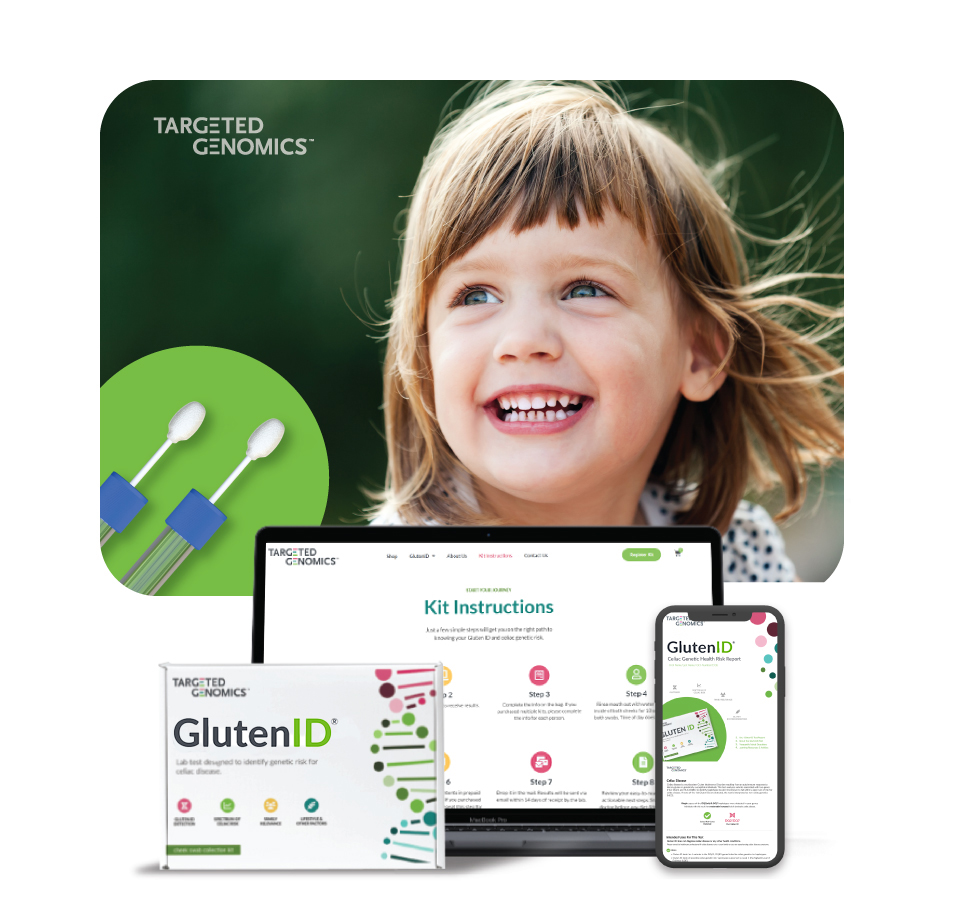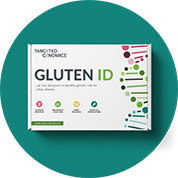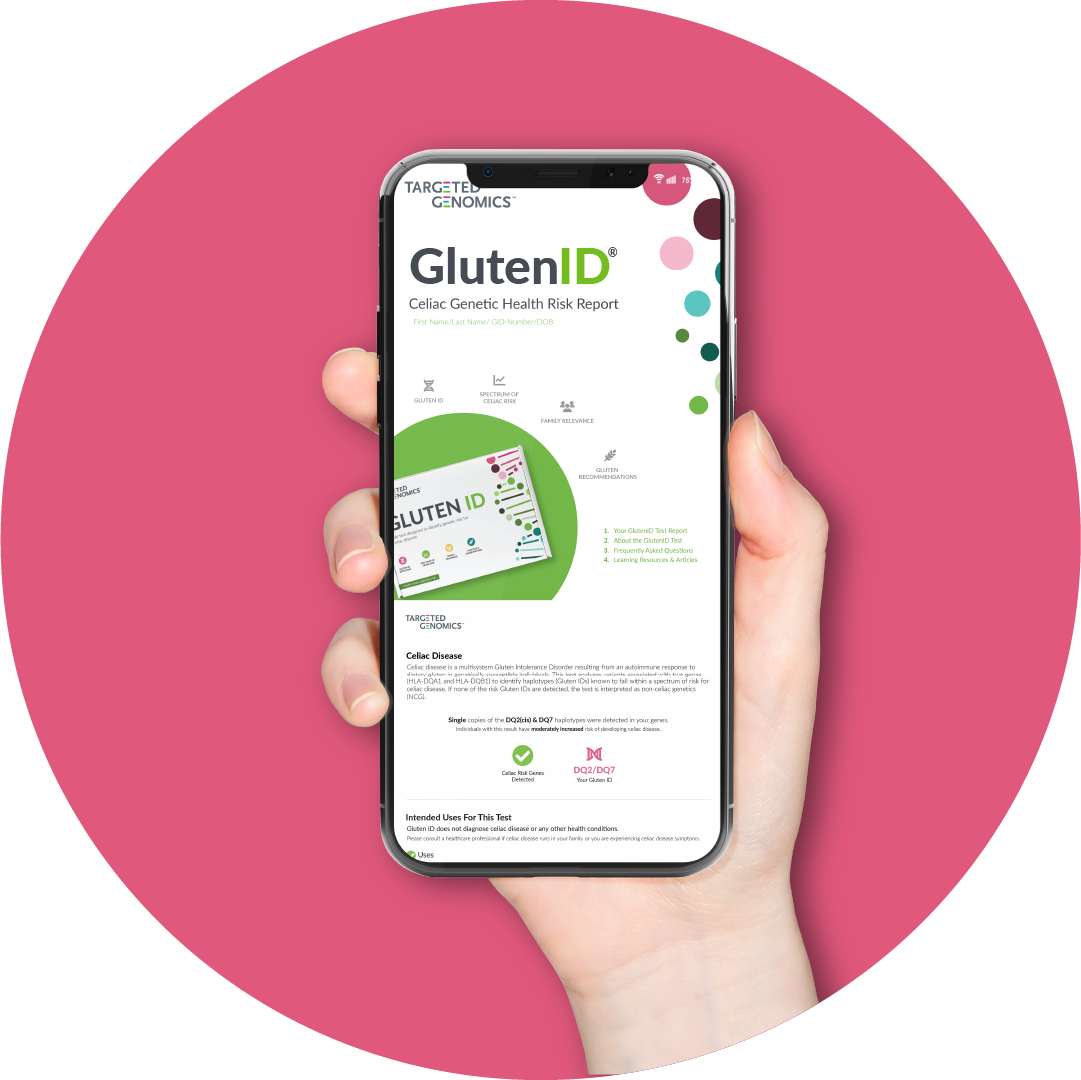
Targeted Genomics is a family-owned company committed to celiac genetics and wellness. The GlutenID® test was designed to identify root causes of celiac disease through a gradient of genetic risk.

WHAT TO EXPECT

Order your kits from the comfort of your home or purchase in your doctor's office or clinic.

Register your kit online and collect your cheek cell samples at your convenience. Mail to the lab with the pre-paid shipping label attached to your kit.

Samples are processed by scientists at PacificDX, a CAP/CLIA certified laboratory. DNA samples are discarded after testing to protect your privacy.

Receive results via email with actionable next steps in a report format designed to share with your doctor.
LEARN MORE
Everyone has one. Discover your family’s inherited genetic risk for celiac disease with this simple cheek swab DNA test. An estimated 70-80% of the world population will have negative GlutenID® results and can rule out the presence or development of celiac disease. For those with positive results, GlutenID® uses a gradient of risk to help guide further celiac testing and dietary choices. If you are looking for a one-time celiac genetic risk screening test unaffected by dietry gluten, then GlutenID® is for you. For physicians who want to offer celiac genetic health risk screening to their patients, we can offer wholesale pricing for your practice.
READ MORE
The GlutenID® test uses qualitative genotyping to detect clinically relevant variants in the genomic DNA of adults from buccal (cheek) cells for the purpose of reporting and interpreting celiac genetic health risk (GHR). This test is not intended to diagnose celiac disease. Your ethnicity may affect the relevance of the report and how your celiac genetic health risk results are interpreted. The variants included in this report are supported by Level 1 (the highest) level of evidence. The celiac risk variants are most common in people of northern European descent. The celiac GHR report describes if a person has variants associated with a higher risk of developing celiac disease, but does not describe a person’s overall risk of developing the disease. The test is not intended to tell you anything about your current state of health, or to be used to make medical decisions, including whether or not you should take a medication, how much of a medication you should take, or determine any treatment. Warnings & Limitations: This report does not include variants in other genes linked to celiac disease and the absence of variants included in this report does not rule out the presence of other genetic variants that may impact celiac risk. The GlutenID® test is not a substitute for visits to a healthcare professional for recommended screenings or appropriate follow-up. Results should be confirmed in a clinical setting before taking any medical action. The intended use of the GlutenID® Test does not include prenatal testing, cancer predisposition, pharmacogenomic assessment, or determination of autosomal dominant genetic variants. For important information and limitations regarding genetic health risk reports, visit Targeted-Genomics.com/about-the-test/.